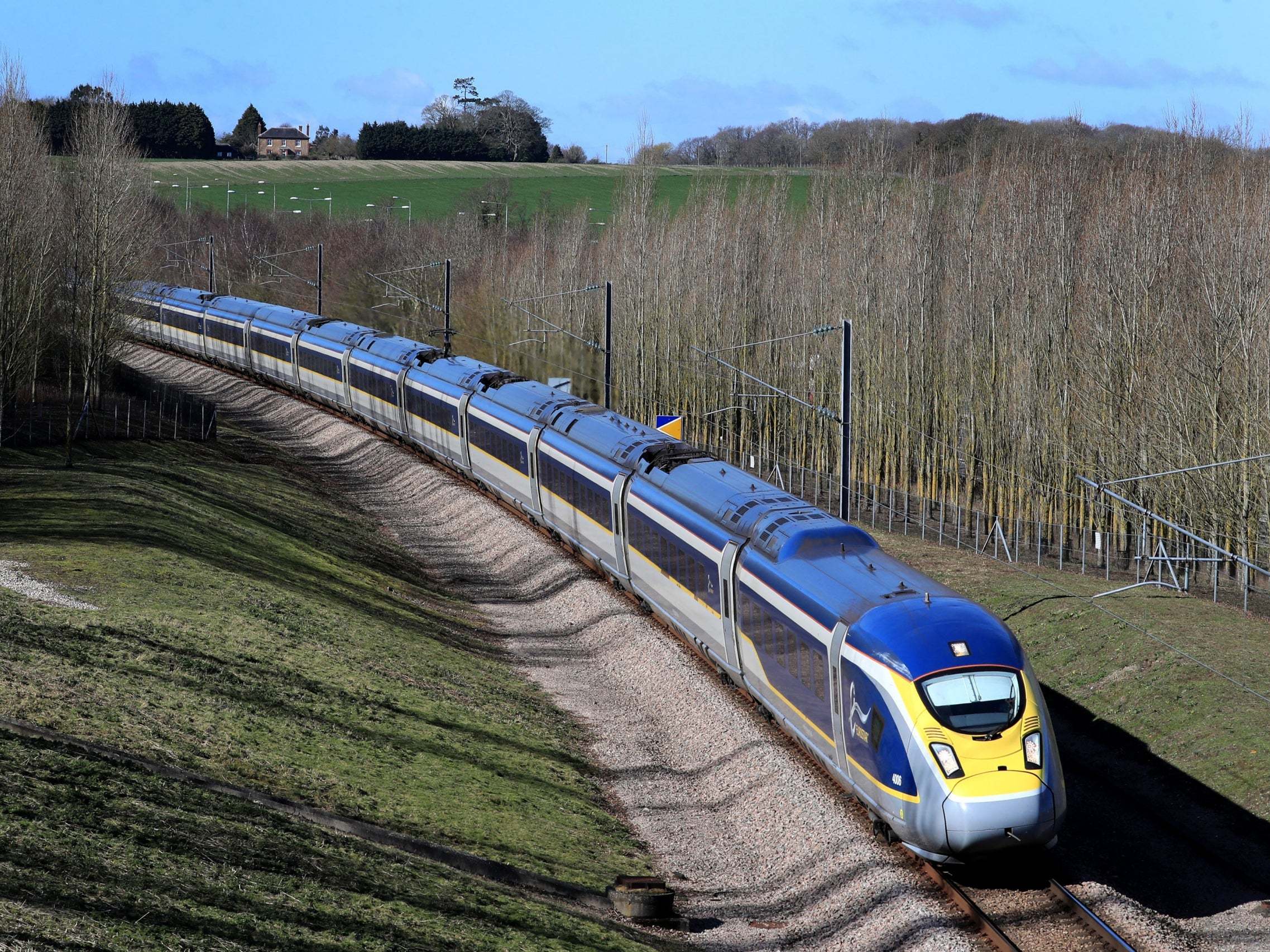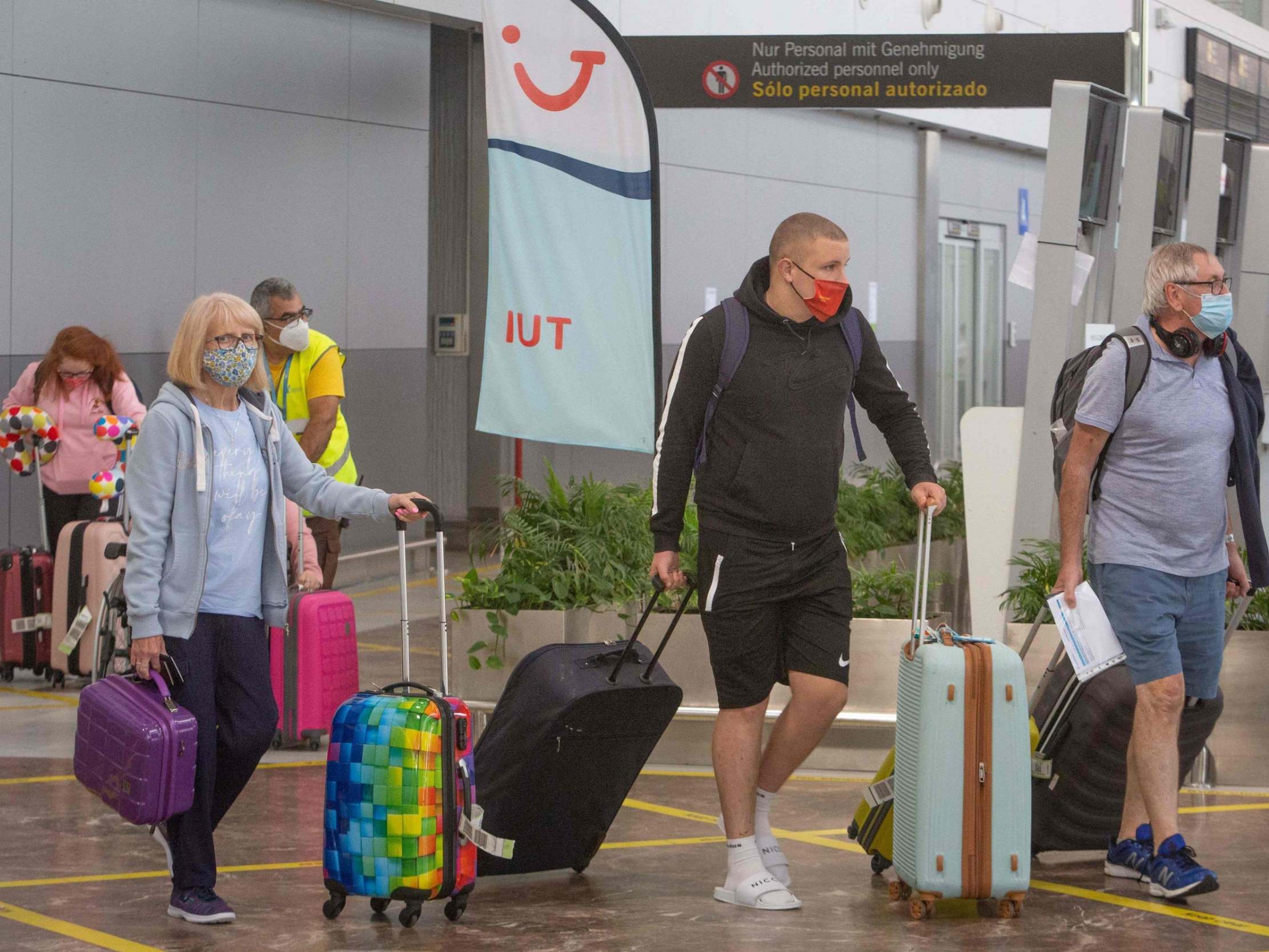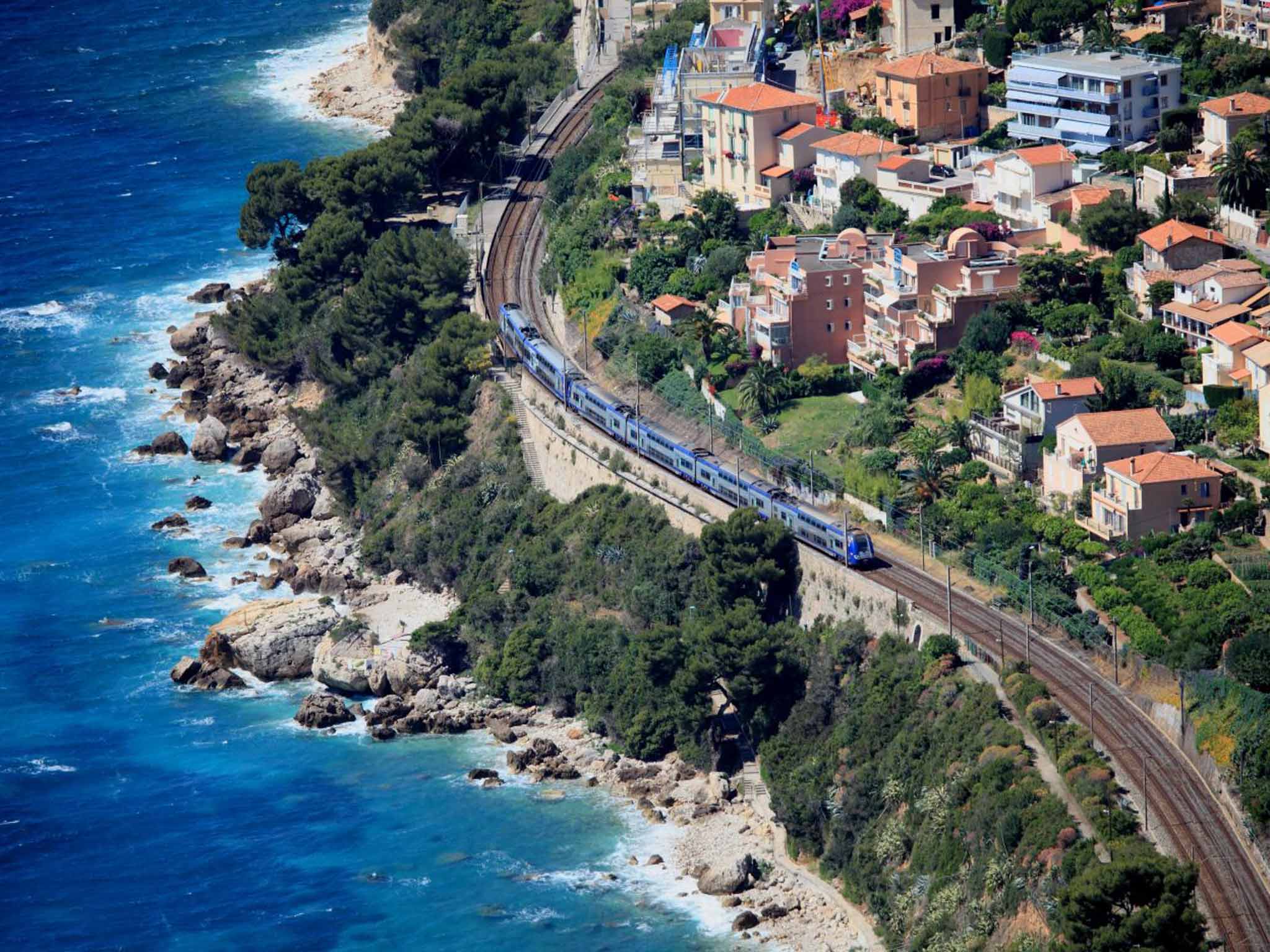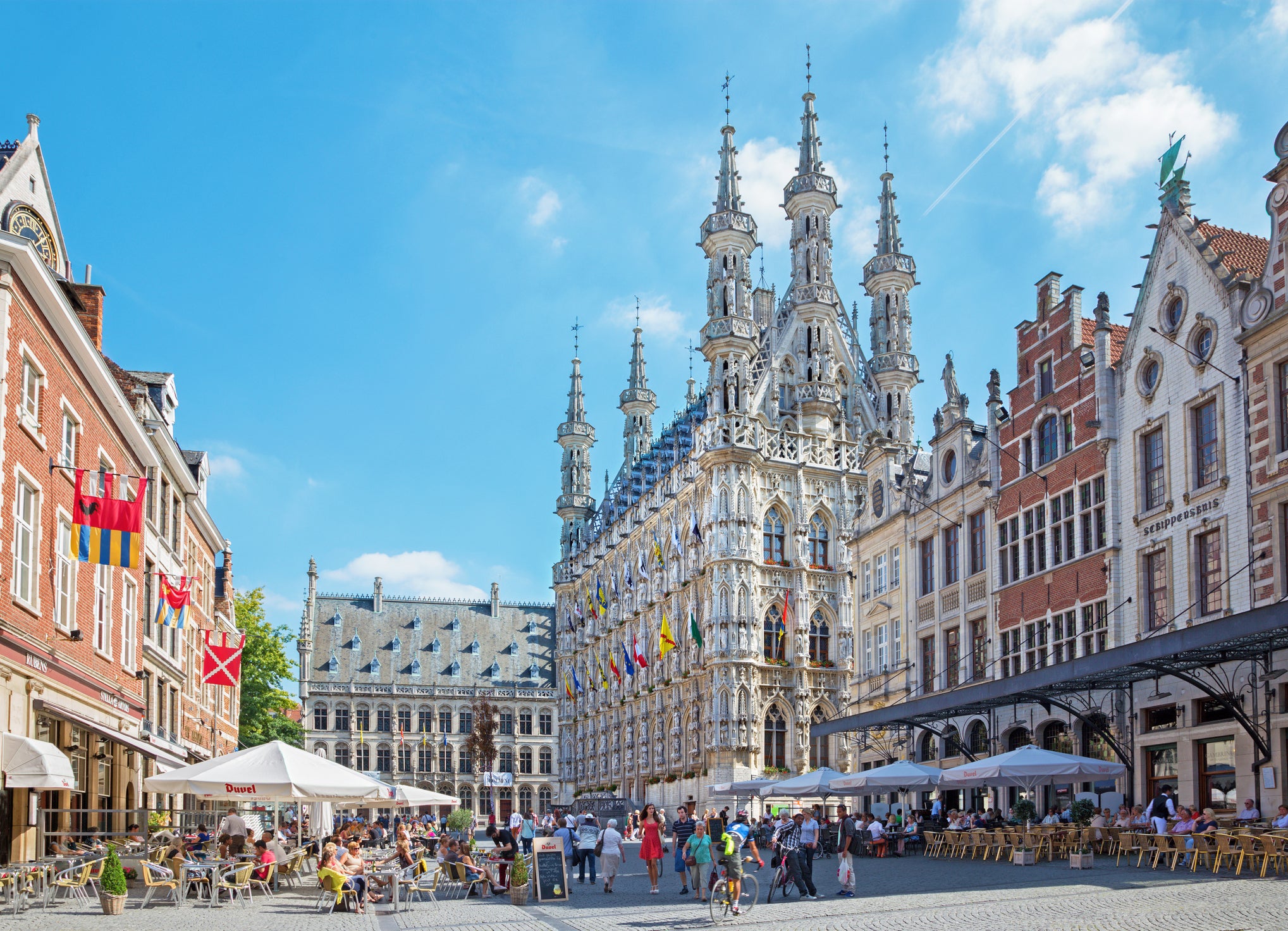Coronavirus: Would I have to isolate after a stop in a high-risk nation?
Simon Calder answers your questions on the latest travel restrictions and whether it’s still worth booking trips in advance


Q If the government were to put Belgium on the quarantine list, would you need to self-isolate if you stop in Brussels for an hour to change trains on Eurostar?
Louise
A Yes – though I stress this answer is hypothetical. There has certainly been chatter on social media, and occasionally mentioned by government ministers, about the worrying level of coronavirus cases in Belgium. As of yesterday, the country had almost three times as many cases per 100,000 as the UK. But on Thursday night it was Luxembourg – not Belgium – that suffered the ignominy of moving from the low-risk to the high-risk lists compiled by the UK government.
The grand duchy is on the “naughty list” alongside the US, Brazil and other hotspots. But to me the fact that it is on its own suggests to me that Belgium is in relatively little danger of being added imminently to the no-go list. They would have gone well together, in terms of proximity.
However, I have been wrong about much during the coronavirus pandemic, so let us assume that Belgium does lose its no-quarantine statue.
The government is clear about stops. English law (other UK nations are much the same) says that if your journey involves a transit stop in a country not on the quarantine-free list, you will need to self-isolate when you arrive in England if new passengers get on; or if you or other passengers get off the transport you are on and mix with other people, then get on again.
The only kind of transit stop that does not incur quarantine is one in which no-one gets off and mixes with people outside before getting back on, or when passengers get off but do not get back on.
You would clearly not satisfy this condition. In addition, if the law stays the same, this would also apply on the Eurostar from Amsterdam via Rotterdam and Brussels to London – or any other train that stops in Belgian territory.

Q I don’t think we should ever have to pay for flights, trains, hotels, holiday packages, cruises, tours or whatever in advance ever again. How do we bring about this long-overdue change?
Rael S
A I imagine millions of frustrated holidaymakers agree with you. Cancellations of long-planned flights, packages and cruises began six months ago as coronavirus began to spread around the world. With the latest Foreign Office warning against travel to our favourite holiday destination, Spain, the number of people waiting for refunds now tops 1 million.
In addition, many travellers have lost hundreds or thousands of pounds on flight tickets, hotel stays and other pre-paid purchases.
That expensive muddle would have been completely avoided had your proposal been in effect. Of course “pay on the day” is frequently found in the travel realm at present – from “walk-up” tickets on the trains of Britain to hotels that allow you to settle the bill on departure.
Yet I fear that much of the travel industry would simply collapse if it were not allowed to take in money from customers ahead of delivery.
Airlines carefully sell seats on each flight over the course of nearly a year – asking passengers to commit well in advance in return for a low fare. I cannot imagine that airlines would want to lay on many flights if they were not guaranteed a large slab of the operating costs in advance.
Pay on the day would be unworkable for matching supply with demand, too. For a (normal) Saturday morning at the start of the February half-term, would ski companies really want to allocate space on planes to the French Alps on the basis of who happened to book first, with no financial commitment? They would also risk seeing their customers literally walk away without penalty if the snow looked thin on the ground that week.
The travel industry is usually extremely good at using pricing and early booking incentives to fill capacity, which helps deliver excellent value for holidaymakers. Post-coronavirus, there may well be a niche market for pay on the day arrangements, but I cannot see it becoming widespread.

Q As a 62- and 63-year-old, are we being irresponsible travelling across France to spend three weeks in our caravan on the Cote d’Azur?
Julie
A Not if you travel in a responsible way. As has been the case throughout the coronavirus pandemic, there are two fundamentals: if you are feeling remotely ill, do not travel or put yourself in close proximity to anyone else; and keep washing your hands scrupulously.
A third requirement is now underway in many circumstances: wear a face covering, to protect other people.
I am sure you will comply with these three essentials, and have an extremely good trip. I visited the Cote d’Azur earlier this month, and enjoyed it even more than my previous trips over the years – because the shining sun, sparkling sea, superb cuisine and bonhomie felt a real privilege after months of lockdown.
But to focus your minds on the risks involved, allow me to mention my concerns with a trip like this.
First, the mode of transport. I flew to Nice and then travelled by bus and train, which I estimate is the best way to minimise risk – alongside making the entire UK-France journey by rail.
While driving will certainly reduce the number of paths you will cross with strangers whose state of health is unknown, it sharply increases your risk of an accident.
In your position, if I were motoring, I would increase the reward:risk ratio as much as I could in my favour by maximising the enjoyment along the way – stopping off in great towns and cities, and taking some of the more scenic roads, such as from Grenoble south to the Mediterranean coast.
Finally, after a slow start traffic is building up heavily along the southern shore – so for local excursions I recommend the excellent railway line along the coast. Much less frustrating, as well as safer.

Q We are planning our first post-lockdown trip this weekend to Belgium, taking the ferry from Dover and driving from Dunkerque. We haven’t booked places to stay yet – partly because we don’t expect any problems finding accommodation, partly to stay flexible about our itinerary and partly in case anything untoward intervenes.
After last weekend’s sudden imposition of quarantine on people returning from Spain, we’re now worried about the same thing happening while we are in Belgium. Should we stay or should we go?
Name supplied
A The government has been making strident warnings that other countries may have the quarantine-free privilege withdrawn at any time, after Spain was abruptly removed from the favoured-nation list on Saturday evening.
I consult the figures published each afternoon from the European Centre for Disease Prevention and Control. The Wednesday report shows a per-capita coronavirus infection rate over the past two weeks almost exactly double the UK’s, though with a far lower death rate.
The data, of course, is fraught with difficulties: a country’s infection rate may be high simply because they are testing many people, and the definition of coronavirus-related mortality varies from one nation to another.
Belgium is certainly a potential candidate for the “naughty list,” along with neighbouring Luxembourg. But were the government to decide to add Belgium, I believe you will get more notice than holidaymakers in Spain received. The “you’ve got an hour to get to the airport and onto a flight” approach was profoundly unhelpful. However, it may have been a deliberate ploy to avoid possible “Brits stuck at foreign airports” headlines if thousands of travellers had tried to find flights home before the deadline. For most of them, it was too late.
Even with short notice, Belgium has several advantages over Spain, not least the proximity of other countries. I calculate that nowhere in Belgium is more than an hour’s drive from an international frontier (the most distant point, by the way, is lovely Leuven, just west of Brussels). But if you do need to return to the UK at short notice because of a “be back on British soil by midnight” situation, you may have to drive past Dunkerque to reach Calais, from where there are more crossing options to Kent.
So I would certainly go, while keeping a watchful eye on the headlines here.
Email your question to s@hols.tv or tweet @simoncalder
Join our commenting forum
Join thought-provoking conversations, follow other Independent readers and see their replies
Comments